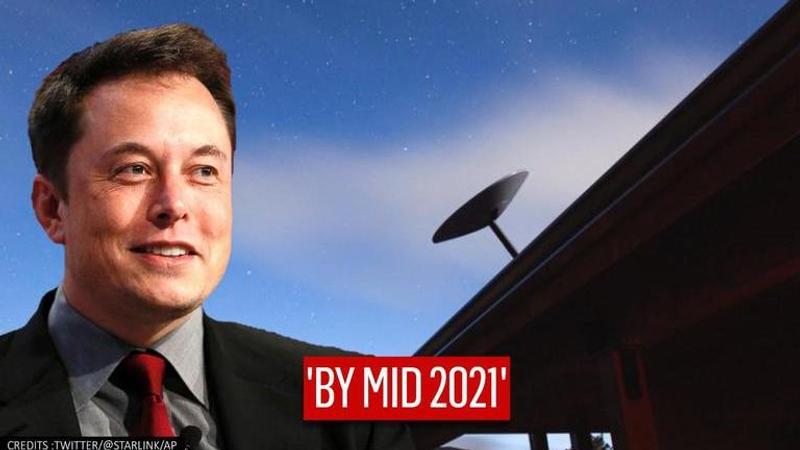Published 14:53 IST, November 19th 2020
Elon Musk's Starlink to bring high-speed satellite internet connection to India by 2021
Elon Musk said that his firm SpaceX was looking to get "regulatory approval" to launch Starlink satellite broadband in India by mid of the next year 2021.

SpaceX CEO Elon Musk is planning to introduce the Starlink broadband internet service in India by mid-2021, as it is now undergoing a public beta in parts of the US and Canada. In response to a tweet about the company’s widescale launch in 2021 to deliver a high-speed satellite internet connection to rural and underserved areas around the world, Tesla founder said that Starlink was looking into Indian regulations for a launch by 2021.
Meanwhile, SpaceX vice president for Satellite Government Affairs, Patricia Cooper responded to the Telecom Regulatory Authority of India (TRAI) consultation paper on Roadmap to Promote Broadband Connectivity and Enhanced Broadband Speed, saying, that the Indian government must work on updating policies for the establishment of satellite-based broadband technology in India.
In a filing as a response to TRAI’s paper dated 20th August 2020 that invited comments from the stakeholders for enhancing the broadband speed, SpaceX VP wrote, "A diverse mix of broadband technology platforms and service providers, including those new to India’s market, will best accelerate broadband access across the nation.” Further, the SpaceX filing added, “SpaceX’s Starlink high-capacity, high-speed, low-latency satellite network will advance the goal of delivering broadband connectivity in the near term to all Indians, particularly those without access now or in the near-term to broadband services traditionally available only to customers in urban and suburban areas.”
SpaceX's recommendations for TRAI
The SpaceX Vice president listed consideration of updated rules, policies, and regulations for Starlink’s launch. The firm listed actions recommended for TRAI to avail fast broadband services from Starlink that has over 800 operational satellites and is planning to expand to 12,000 to achieve internet speeds of 100 Mbps or more with ultralow latency to people worldwide.
- Encouraging technology-neutral broadband definitions that reflect the advances of next-generation satellite services.
- Assigning already-allocated frequencies for use by satellite systems.
- Extending “blanket” licensing tools to support the wide-spread availability of satellite user terminals.
- Promoting maximum spectrum efficiency by expecting users to coordinate use of scarce spectrum resources across multiple systems, whether terrestrial or space-based.
- Safeguarding ongoing satellite innovation in higher frequency bands, while maintaining the expectation that all spectrum users, terrestrial and space-based, will coordinate in good faith.
- Considering the unintended fees, taxes, and other administrative burdens that, when passed on to end-users, can make broadband unaffordable to many.
“Combination of such regulatory actions can foster best of class technology deployment throughout India and maximize the choices available to all Indian consumers,” SpaceX recommended. Elon Musk’s firm stated that as a global leader in space manufacturing, launch, and operations, India is well aware of the transformational potential satellite technologies hold for the communication industry.
Updated 14:52 IST, November 19th 2020




